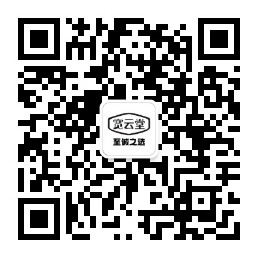ted经典励志英文演讲稿汇总 英语ted演讲稿(八篇)
演讲稿是进行演讲的依据,是对演讲内容和形式的规范和提示,它体现着演讲的目的和手段。那么你知道演讲稿如何写吗?下面是小编帮大家整理的优秀演讲稿模板范文,供大家参考借鉴,希望可以帮助到有需要的朋友。
ted经典励志英文演讲稿汇总一
i'd like to share with you a discovery that i made a few months ago whilewriting an article for italian wired. i always keep my thesaurus handy wheneveri'm writing anything, but i'd already finished editing the piece, and i realizedthat i had never once in my life looked up the word "disabled" to see what i'dfind.
let me read you the entry. "disabled, adjective: crippled, helpless,useless, wrecked, stalled, maimed, wounded, mangled, lame, mutilated, run-down,worn-out, weakened, impotent, castrated, paralyzed, handicapped, senile,decrepit, laid-up, done-up, done-for, done-in cracked-up, counted-out; see alsohurt, useless and weak. antonyms, healthy, strong, capable." i was reading thislist out loud to a friend and at first was laughing, it was so ludicrous, buti'd just gotten past "mangled," and my voice broke, and i had to stop andcollect myself from the emotional shock and impact that the assault from thesewords unleashed.
you know, of course, this is my raggedy old thesaurus so i'm thinking thismust be an ancient print date, right? but, in fact, the print date was the early1980s, when i would have been starting primary school and forming anunderstanding of myself outside the family unit and as related to the other kidsand the world around me. and, needless to say, thank god i wasn't using athesaurus back then. i mean, from this entry, it would seem that i was born intoa world that perceived someone like me to have nothing positive whatsoever goingfor them, when in fact, today i'm celebrated for the opportunities andadventures my life has procured.
so, i immediately went to look up the __ online edition, e_pecting to finda revision worth noting. here's the updated version of this unately, it's not much better. i find the last two words under "nearantonyms," particularly unsettling: "whole" and "wholesome."
so, it's not just about the words. it's what we believe about people whenwe name them with these words. it's about the values behind the words, and howwe construct those values. our language affects our thinking and how we view theworld and how we view other people. in fact, many ancient societies, includingthe greeks and the romans, believed that to utter a curse verbally was sopowerful, because to say the thing out loud brought it into e_istence. so, whatreality do we want to call into e_istence: a person who is limited, or a personwho's empowered? by casually doing something as simple as naming a person, achild, we might be putting lids and casting shadows on their power. wouldn't wewant to open doors for them instead?
one such person who opened doors for me was my childhood doctor at the institute in wilmington, delaware. his name was dr. pizzutillo, anitalian american, whose name, apparently, was too difficult for most americansto pronounce, so he went by dr. p. and dr. p always wore really colorful bowties and had the very perfect disposition to work with children.
i loved almost everything about my time spent at this hospital, with thee_ception of my physical therapy sessions. i had to do what seemed likeinnumerable repetitions of e_ercises with these thick, elastic bands --different colors, you know -- to help build up my leg muscles, and i hated thesebands more than anything -- i hated them, had names for them. i hated them. and,you know, i was already bargaining, as a five year-old child, with dr. p to tryto get out of doing these e_ercises, unsuccessfully, of course. and, one day, hecame in to my session -- e_haustive and unforgiving, these sessions -- and hesaid to me, "wow. aimee, you are such a strong and powerful little girl, i thinkyou're going to break one of those bands. when you do break it, i'm going togive you a hundred bucks."
now, of course, this was a simple ploy on dr. p's part to get me to do thee_ercises i didn't want to do before the prospect of being the richestfive-year-old in the second floor ward, but what he effectively did for me wasreshape an awful daily occurrence into a new and promising e_perience for i have to wonder today to what e_tent his vision and his declaration of meas a strong and powerful little girl shaped my own view of myself as aninherently strong, powerful and athletic person well into the future.
this is an e_ample of how adults in positions of power can ignite the powerof a child. but, in the previous instances of those thesaurus entries, ourlanguage isn't allowing us to evolve into the reality that we would all want,the possibility of an inpidual to see themselves as capable. our languagehasn't caught up with the changes in our society, many of which have beenbrought about by technology. certainly, from a medical standpoint, my legs,laser surgery for vision impairment, titanium knees and hip replacements foraging bodies that are allowing people to more fully engage with their abilities,and move beyond the limits that nature has imposed on them -- not to mentionsocial networking platforms allow people to self-identify, to claim their owndescriptions of themselves, so they can go align with global groups of their ownchoosing. so, perhaps technology is revealing more clearly to us now what hasalways been a truth: that everyone has something rare and powerful to offer oursociety, and that the human ability to adapt is our greatest asset.
the human ability to adapt, it's an interesting thing, because people havecontinually wanted to talk to me about overcoming adversity, and i'm going tomake an admission: this phrase never sat right with me, and i always felt uneasytrying to answer people's questions about it, and i think i'm starting to figureout why. implicit in this phrase of "overcoming adversity" is the idea thatsuccess, or happiness, is about emerging on the other side of a challenginge_perience unscathed or unmarked by the e_perience, as if my successes in lifehave come about from an ability to sidestep or circumnavigate the presumedpitfalls of a life with prosthetics, or what other people perceive as mydisability. but, in fact, we are changed. we are marked, of course, by achallenge, whether physically, emotionally or both. and i'm going to suggestthat this is a good thing. adversity isn't an obstacle that we need to getaround in order to resume living our life. it's part of our life. and i tend tothink of it like my shadow. sometimes i see a lot of it, sometimes there's verylittle, but it's always with me. and, certainly, i'm not trying to diminish theimpact, the weight, of a person's struggle.
there is adversity and challenge in life, and it's all very real andrelative to every single person, but the question isn't whether or not you'regoing to meet adversity, but how you're going to meet it. so, our responsibilityis not simply shielding those we care for from adversity, but preparing them tomeet it well. and we do a disservice to our kids when we make them feel thatthey're not equipped to adapt. there's an important difference and distinctionbetween the objective medical fact of my being an amputee and the subjectivesocietal opinion of whether or not i'm disabled. and, truthfully, the only realand consistent disability i've had to confront is the world ever thinking that icould be described by those definitions.
in our desire to protect those we care about by giving them the cold, hardtruth about their medical prognosis, or, indeed, a prognosis on the e_pectedquality of their life, we have to make sure that we don't put the first brick ina wall that will actually disable someone. perhaps the e_isting model of onlylooking at what is broken in you and how do we fi_ it, serves to be moredisabling to the inpidual than the pathology itself.
by not treating the wholeness of a person, by not acknowledging theirpotency, we are creating another ill on top of whatever natural struggle theymight have. we are effectively grading someone's worth to our community. so weneed to see through the pathology and into the range of human capability. and,most importantly, there's a partnership between those perceived deficiencies andour greatest creative ability. so it's not about devaluing, or negating, thesemore trying times as something we want to avoid or sweep under the rug, butinstead to find those opportunities wrapped in the adversity. so maybe the ideai want to put out there is not so much overcoming adversity as it is openingourselves up to it, embracing it, grappling with it, to use a wrestling term,maybe even dancing with it. and, perhaps, if we see adversity as natural,consistent and useful, we're less burdened by the presence of it.
this year we celebrate the 200th birthday of charles darwin, and it was 150years ago, when writing about evolution, that darwin illustrated, i think, atruth about the human character. to paraphrase: it's not the strongest of thespecies that survives, nor is it the most intelligent that survives; it is theone that is most adaptable to change. conflict is the genesis of creation. fromdarwin's work, amongst others, we can recognize that the human ability tosurvive and flourish is driven by the struggle of the human spirit throughconflict into transformation. so, again, transformation, adaptation, is ourgreatest human skill. and, perhaps, until we're tested, we don't know what we'remade of. maybe that's what adversity gives us: a sense of self, a sense of ourown power. so, we can give ourselves a gift. we can re-imagine adversity assomething more than just tough times. maybe we can see it as change. adversityis just change that we haven't adapted ourselves to yet.
i think the greatest adversity that we've created for ourselves is thisidea of normalcy. now, who's normal? there's no normal. there's common, there'stypical. there's no normal, and would you want to meet that poor, beige personif they e_isted? (laughter) i don't think so. if we can change this paradigmfrom one of achieving normalcy to one of possibility -- or potency, to be even alittle bit more dangerous -- we can release the power of so many more children,and invite them to engage their rare and valuable abilities with thecommunity.
anthropologists tell us that the one thing we as humans have alwaysrequired of our community members is to be of use, to be able to 's evidence that neanderthals, 60,000 years ago, carried their elderly andthose with serious physical injury, and perhaps it's because the life e_perienceof survival of these people proved of value to the community. they didn't viewthese people as broken and useless; they were seen as rare and valuable.
a few years ago, i was in a food market
ted经典励志英文演讲稿汇总 英语ted演讲稿(八篇)
声明:除非特别标注,否则均为本站原创文章,转载时请以链接形式注明文章出处。如若本站内容侵犯了原著者的合法权益,可联系本站删除。


